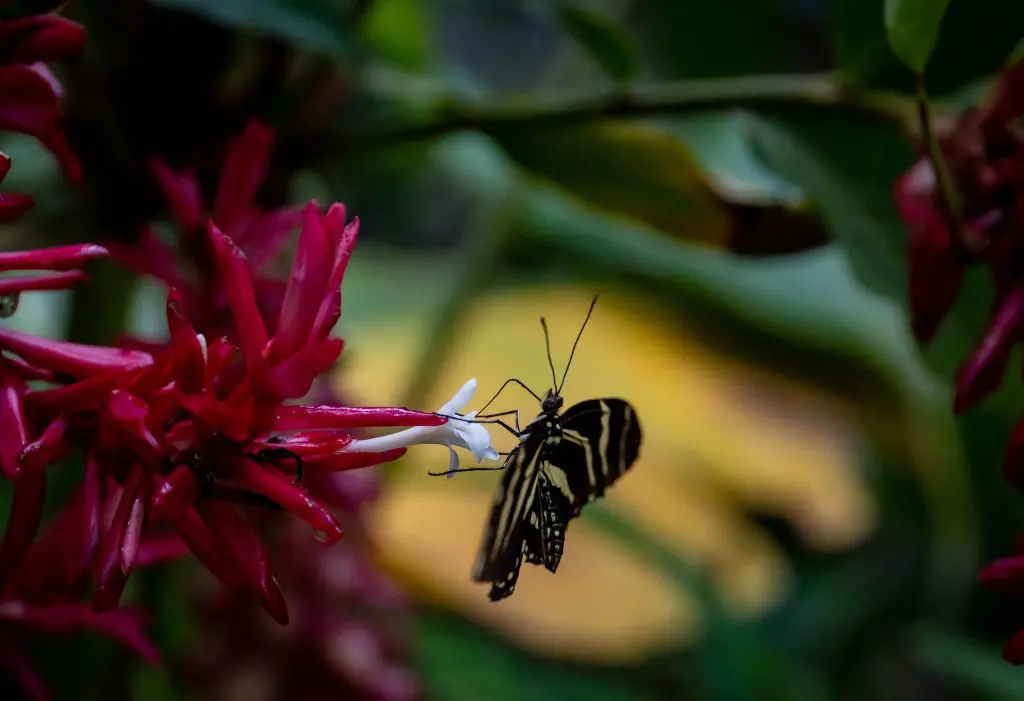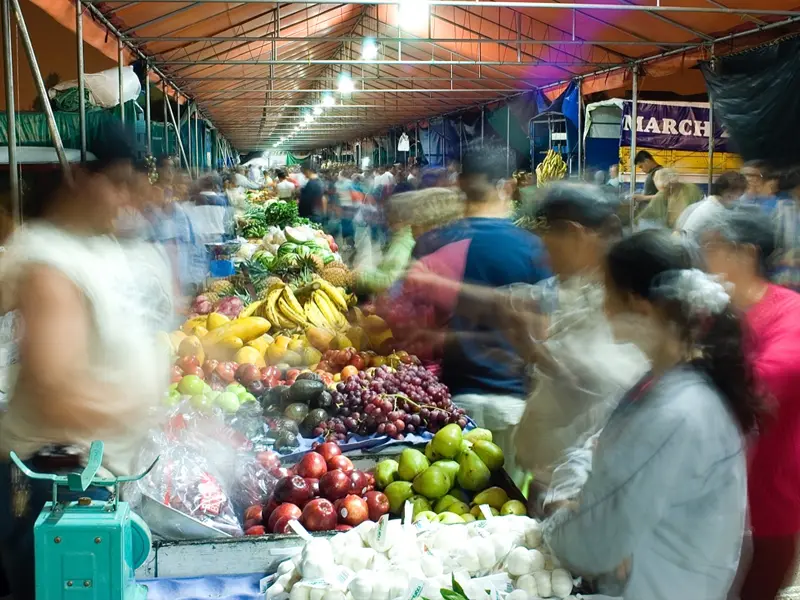
Our DNA has been green right from the start.
One of the early advocates of eco-tourism was founder and CEO Jim Damalas, who helped pioneer the concept of sustainable hospitality 30 years ago with phase one of Si Como No Resort & Wildlife Refuge, in Manuel Antonio. Today Si Como No is a recognized leader in sustainable hospitality in Costa Rica and is the unifying principle that connects all the staff and management expressed through our passionate and deeply held conviction to respect, honor, and protect the “Magic of Nature”.
Reducing our carbon footprint, while increasing our activity in protecting the natural resources in our area of operation, is one of our key objectives. The other is the economic sustainability of the surrounding communities where we operate. We believe Costa Rica’s natural resources include the county of Quepos and the barrios of Manuel Antonio surrounding the property, which includes our long-held commitment to hire locally. We invite you to learn more about the hotel and surrounding communities by talking to our staff, the majority of whom grew up in the area.
MISSION
At Si Como No we want to perpetuate the “Magic of Nature” with experiences offered to our guests. We want to achieve that harmony through the collaboration, between our work teams and our guests, protecting both our biological and social environments through practices throughout the year.
VISION
Through the promotion of responsible environmental practices, we will control and reduce the hotel impact on the environment; we will contribute, together with other companies in the area, and throughout the country, working hand in hand with the institutions and associations whose shared objectives are to practice sustainable policies, both for protecting our natural resources and for enhancing our community values.

Since 1999, the Corcovado Foundation has led conservation effors in Drake Bay and the neighboring comminuties. Since it´s creation, it has provided environmental eduaction to thousands of children and shaped a new generation of Drakedians to become a new generation of responsible pro-environmental behavior individuals who act and participate in society as agents of change. Hundreds of children are now young adults with a new approach to life and their surroundings. These are some of foundation´s achievements in 2022:
We implemented 43 Environmental Education sessions in 8 schools and one high school in 9 different communities, and 216 children were reached. We have worked with 5 Environmental Groups in 5 communities for 125 workshops and conservation activities implemented. We have planted 2,142 trees on three private farms and in the Golfo Dulce Forest Reserve. We have been carrying out reforestation, fauna monitoring, beach cleaning, and exchange with international students, with 18 students from the Drake school participating in the Junior Park Ranger Program with the Corcovado National Park. We support the desing and consolidation of 3 integral Farms in 3 Drake communities. We have established a demonstrative project of bio-inputs and a vegetable garden in the Corcovado Foundation´s Biohostel in Progreso.
We organized a 4-day exchange in Sarapiquí with 14 cattle farmers and producers from Drake Bay to learn about regenerative agriculture and ranching. We have helped organize four recycling collection campaigns, collected five and half tons of recycling, and supported the Municipality of Osa and ECOINS. We organized one castration campaign in Progreso, where 37 dogs and cats were neutered. We completed a sustainable consumption plan for mussels (Anadara tuberculosa) for the Térraba Sierpe Wetland. We are supporting the program of Regenerative Agriculture with Los Mayos Mountain Nature Reserve, a mission goal represented by The Nature Fund for Costa Rica, a 501c3 non-profit organization. We have implemented a restoration process for 13 hectares of mangrove swamps in the Térraba Sierpe National Wetland and Bahía Tomas Mangrove.
Corcovado Foundation Conservation Fee
We have included a conservation fee of $2.50 per night to directly help, along with our own corporate donations, the Corcovado Foundation, a non-profit organization we have supported for more than two decades. Its mission is the conservation of our biodiversity and community awareness of "Sustainable Practices" in Costa Rica since 1998. Visit https://corcovadofoundation.org
Treading Lightly

We’re not only mindful of our carbon footprint. We’re also mindful of the footprints we make with every aspect of our hospitality. Our commitment is to minimize the disruption of the flora and fauna, carefully crafting the paths and access infrastructure so our guests can experience these tropical forests in as close to their original condition as possible. Our Certified Guides adhere to our own rigorous standards in leading tours in public areas such as National Park of Manuel Antonio and the Santa Juana Rural Mountain Tour, exceeding compliance with regulations and laws. We take out everything we bring in. We take nothing from any park, public sanctuary, or tour attraction — except photographs and extraordinary memories.
Part of that commitment is also in what we won’t do. We won’t run or directly promote any motorized tours into the jungle or concessions using personal watercraft on the water. Our motorized activity on the water is limited to boats used for water transportation, mangrove tours, diving and snorkeling, and our catch-and-release fishing fleet.
Sustainable Hospitality of Costa Rica Resort
We deliver exceptional experiences in Costa Rica that are shaped around the unique bio-regions within the climate zones in which we operate.
Reducing our carbon footprint while increasing our activity in protecting the natural resources in our areas of operation is one of our key objectives. The other is the economic sustainability of the communities adjacent to the places where we operate. We believe that Costa Rica's natural resources include its people, heritage, and culture.
Therefore, we actively support programs and initiatives in the towns and communities surrounding the hotel, including our long-standing commitment to hire locally.
Si Como No Sustainable Policies and Practices
Si Como No’s sustainability policies govern the following key areas of environmental impact and compliance supported by staff training. We also have ongoing orientation programs led by hotel supervisors for new staff, hotel guests and visitors from national and international foundations, universities and private groups advocating sustainability and conservation.
Recycling and Waste Management
We recycle glass, plastic, paper, and aluminum cans throughout the hotel's operations using the local recycling center in each community. Fruit and vegetable waste is recycled to make compost to fertilize the hotel's gardens. Meat, fish and poultry waste is collected daily for farm animals, reducing the demand on local waste disposal facilities. We have limited bars of soap for bathroom sinks. All soap bar wrappers are recyclable and, whenever possible, banana paper is used for printed material.
Housekeeping teams use certified biodegradable cleaning and laundry products, eliminating the use of chlorine bleach and other harmful chemicals. Chlorine is used only in swimming pools in compliance with Health Department regulations. However, waterfalls were designed into each of our pools for improved aeration, which reduces overall chlorine use.
To involve our guests in sustainability, each room has cards with suggestions to minimize environmental impact. Guest support in turning off lights and air conditioning when not in the rooms, and reusing linens per their preference, helps us significantly reduce energy consumption and save water.
We also learn from our guests and our staff. Through guest feedback in conversations and surveys, we’ve fine-tuned our services and policies, acting on many of their suggestions and observations over the years.
We have a long-standing program at Si Como No to help the Corcovado Foundation with the help of our guest’s voluntary donation of $2 per night that goes directly to the Corcovado Foundation mission in education of sustainable practices and the emphasis in Regenerative Agriculture.
Organics and Food from the Source
Sustainability for us is certainly about the essential issues of protecting Costa Rica’s biogeography and biodiversity. These are the price of entry as far as we’re concerned. But we also care deeply about what our guests eat, so we have practices in place that help preserve and promote sustainable food production, as well as to protect the traditional lifestyles that our sister lodge in Santa Juana represents; https://www.santajuanalodge.com. The shorter the distance from the right food source to your plate, the better we control the quality. The Claro Que Si Restaurant and Rico Tico Jungle Grill source high quality meat, poultry, seafood, and produce from a combination of local farmers and artisan fisherman. Importantly, the relationships we maintain, built over time with local food producers, contribute to superior quality and selection as we support their businesses and livelihoods. Our Cala Spa menus include various treatments and therapeutic ingredients that feature locally sourced organic herbs and extracts, with some of those products available for sale in some hotels. https://www.santajuanalodge.com


Costa Rica Great Biennal Prize 1996 – Colegio de Arquitectos de Costa Rica (CACR)
 Sí Como No Resort & Wildlife Refuge was the winner of Costa Rica Great Biennal Prize 1996.
Sí Como No Resort & Wildlife Refuge was the winner of Costa Rica Great Biennal Prize 1996.
Archit. Jaime Rouillón
“A leaf is surrounded by a forest of branches”
This is the way the hotel is conceptualized. A remodeling created for this set where a volumen is designed where the lobby and reception are located.
Archit. Rouillón chose to live in Costa Rica to develop as a professional, after practice and postgraduate studies. His training is somewhat hybrid, being Costa Rican and Peruvian.
After studying in the United States and developing professionally internationally, he returned to Costa Rica with the desire to find a free and spontaneous architecture based on experimentation with different materials.
